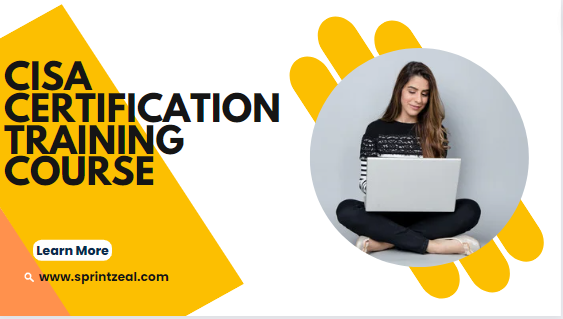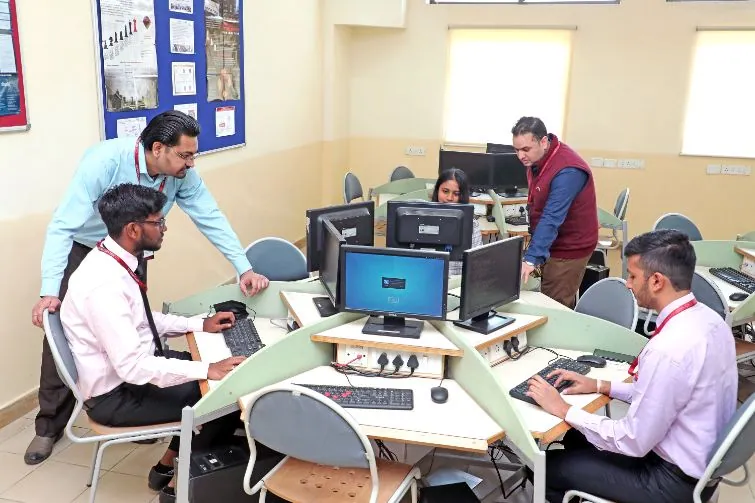Getting Your ISACA CISA certification Training Made Easy
In today’s digital landscape, the need for skilled professionals in information security and assurance is on the rise. As businesses grow more reliant on technology, safeguarding information systems becomes paramount. One of the most recognized certifications in this field is the Certified Information Systems Auditor (CISA) offered by ISACA. It validates expertise in auditing, controlling, and assuring the integrity of information systems.
If you’re considering pursuing the CISA Certification in Salt Lake City UT but are unsure about how to start or whether it’s achievable, this article will provide insights and strategies to make obtaining your ISACA CISA certification easier.
Table of Contents
ToggleWhy Pursue CISA Certification?
CISA certification is globally recognized and widely respected across industries. Whether you’re aiming to become a systems auditor, IT auditor, or simply strengthen your information systems skills, CISA can open doors to lucrative career opportunities.
Key benefits include:
- Global Recognition: The certification is known across industries and countries, which provides flexibility if you’re considering working internationally.
- Career Growth: It offers professional validation of your skills in information security, leading to higher salaries and promotions.
- Networking: CISA connects you to ISACA’s global community, allowing you to network with other information systems professionals.
- Expertise Validation: It affirms your proficiency in auditing information systems and ensures you have the knowledge needed to safeguard company assets.
Now, let’s break down how to prepare for and pass the CISA exam with ease.
Step 1: Understand the Exam Structure
Before starting your preparation, familiarize yourself with the CISA exam format. The exam consists of 150 multiple-choice questions based on five main domains:
- Information System Auditing Process (21%)
- Governance and Management of IT (17%)
- Information Systems Acquisition, Development, and Implementation (12%)
- Information Systems Operations, Maintenance, and Service Management (23%)
- Protection of Information Assets (27%)
Each domain covers different topics that require a specific skill set, so it’s important to understand what each involves and how much emphasis it carries on the exam.
Step 2: Meet the Eligibility Requirements
To become CISA certified, candidates must meet both exam and professional experience requirements. Specifically, you must pass the CISA exam and have at least five years of professional experience in information systems auditing, control, or security. However, up to three years of experience can be waived based on your educational background or other professional certifications (e.g., a bachelor’s degree or a master’s degree in information security).
Step 3: Gather Study Materials
To effectively prepare for the exam, it’s essential to gather the right study materials. ISACA offers a comprehensive study guide, but there are also third-party resources that can help. Here’s a list of commonly used study materials:
- CISA Review Manual: ISACA’s official review manual is the go-to resource for the exam. It offers an in-depth review of each domain and detailed explanations of concepts.
- CISA Review Questions, Answers, and Explanations Database: This is an excellent tool for practicing exam questions and getting a feel for the types of questions that may appear on the exam.
- Practice Tests: Several online platforms offer CISA practice tests, which are a crucial part of preparation. They simulate the real exam experience and help assess your readiness.
- CISA Study Groups and Forums: Engage with other CISA candidates through forums or study groups. Discussing complex topics and sharing tips with others can greatly enhance your understanding.
Step 4: Create a Study Plan
Having a structured study plan is critical. Since the exam covers a wide range of topics, allocate enough time to each domain based on its weight on the exam. A typical study timeline could look like this:
- 3-4 months of study: Set aside 10-15 hours per week for consistent study.
- Domain-based study: Focus on one domain at a time. For example, spend the first three weeks on the Information System Auditing Process, then move on to Governance and Management of IT.
- Daily Practice: Dedicate 30 minutes each day to practice questions.
Breaking down your study sessions into manageable chunks will help you avoid burnout and ensure you’re absorbing the material.
Step 5: Take Practice Exams
As you near the end of your preparation, start taking full-length practice exams. This will help you:
- Get Comfortable with the Exam Format: Familiarizing yourself with the style of questions and pacing is key to doing well.
- Identify Weaknesses: Practice exams highlight areas where you need more focus.
- Manage Your Time: Since the CISA exam lasts four hours, time management is crucial. Practice exams help you gauge how much time you can dedicate to each question.
Many candidates find that taking 2-3 full-length practice tests in the final month before the exam boosts their confidence and ensures they’re ready.
Step 6: Sit for the Exam
The CISA exam is available during designated testing windows. ISACA offers both in-person and remote testing options, giving you flexibility in where and how you take the exam. On exam day, ensure you’re well-rested, eat a good meal, and arrive at the test site (or log in for remote testing) early to avoid any last-minute stress.
Step 7: Maintain Your Certification
Once you pass the CISA exam and fulfill the experience requirements, you’ll officially become CISA certified. To maintain your certification, ISACA requires ongoing Continuing Professional Education (CPE). You must complete 20 hours of CPE annually and 120 hours over three years to keep your knowledge up-to-date and retain your certification status.
Conclusion
Achieving your CISA certification is a valuable career milestone, but it doesn’t have to be daunting. By understanding the exam structure, gathering the right study materials, and sticking to a study plan, you can streamline the process and pass the exam with ease. Taking practice tests, joining study groups, and maintaining your certification will ensure that you continue to grow and succeed in the field of information systems auditing.






